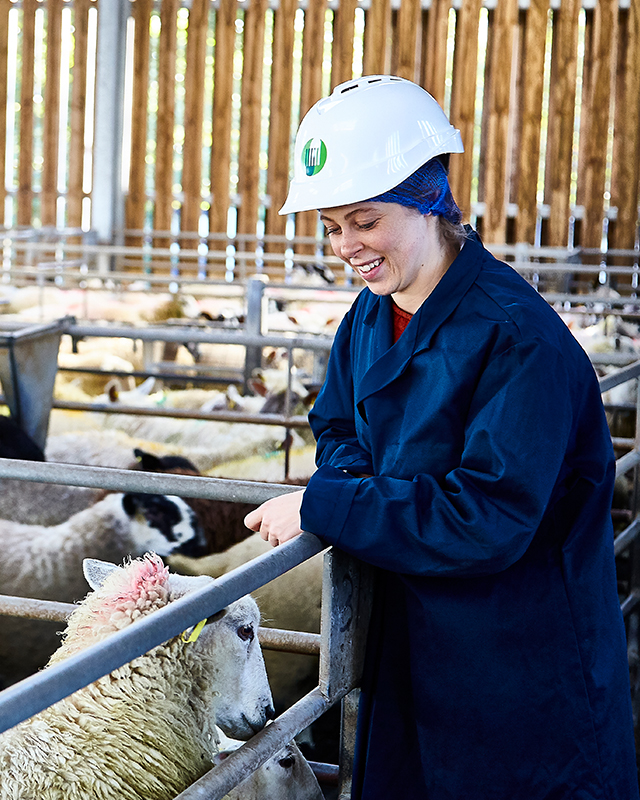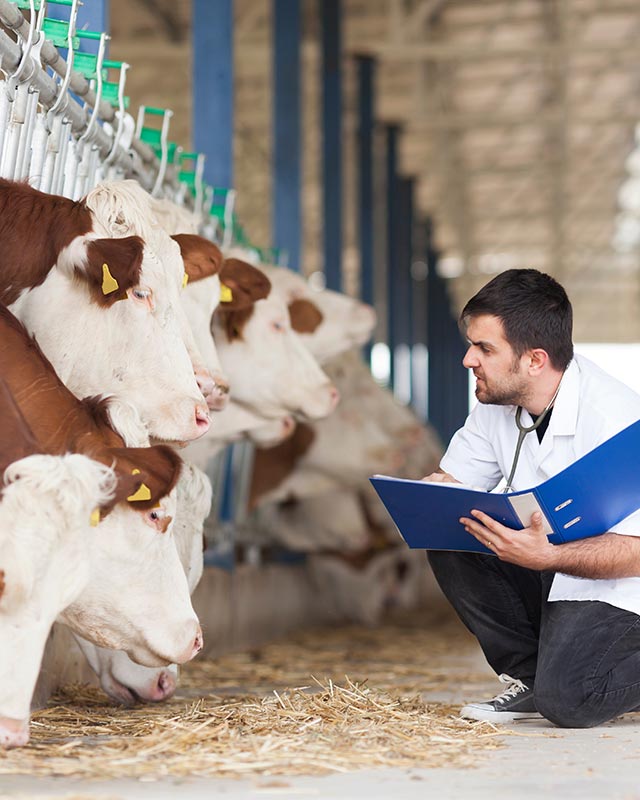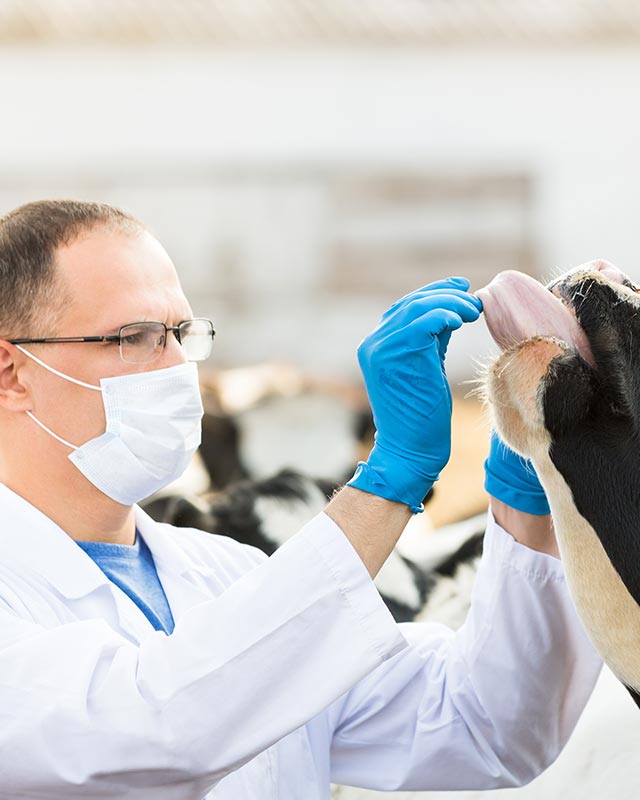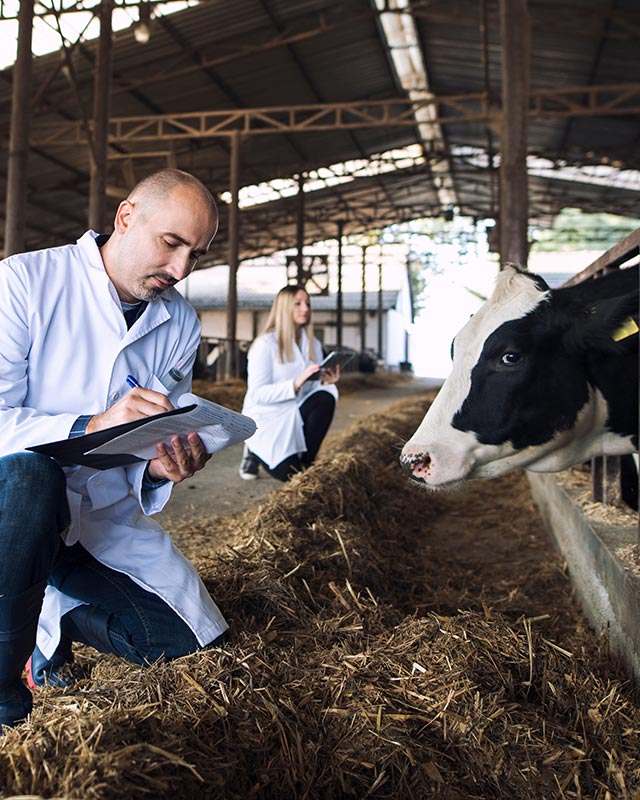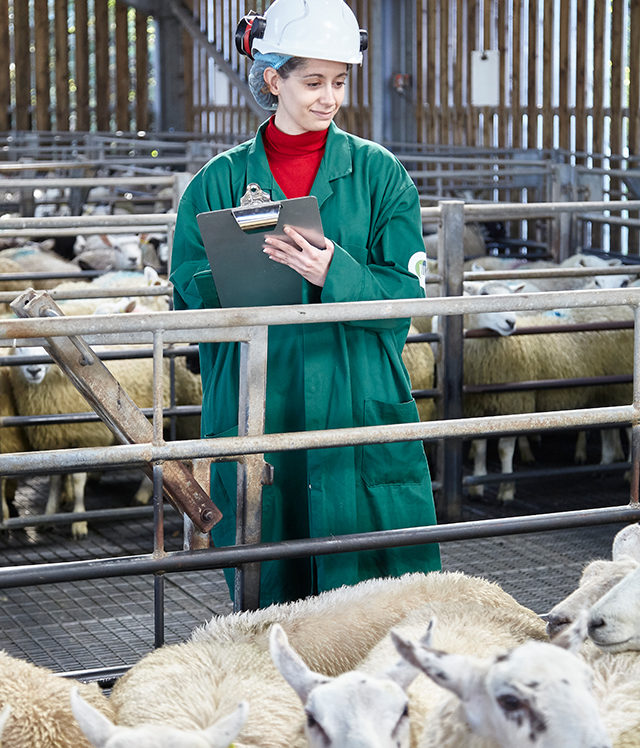The Official Veterinarian (OV) role is a crucial one, with OVs working to deliver official controls and certify that all animal products are safe to enter the food chain. With the majority of UK students choosing to go into clinical practice, it is a career which experiences shortages, despite the vital nature of this work.
Harper & Keele Veterinary School (HKVS) invited us to work collaboratively with them to help train fifth-year veterinary students during their abattoir visit in their Veterinary Public Health rotation. In addition to covering core content as part of the veterinary degree, it is hoped that these visits inspire more UK vet graduates to consider a career as an Official Veterinarian.
A programme of nine visits across two ABP Food Group abattoirs in the West Midlands has been arranged this academic year. An E&J OV works in partnership with a HKVS staff member to deliver a comprehensive teaching and learning experience within the lairage and slaughter hall of the abattoirs visited. Sebastian Zorescu, an Area Manager at E&J, has put together training material which covers the most important points of the official controls discharged by OVs in slaughterhouse environments.
This includes:
- Ante-mortem
- Process verification
- HACCP controls
- Post-mortem inspection
- Animal welfare
- Animal by-product controls
This material has been tailored for student learning and approved by Professor Philip Robinson, Professor of Veterinary Public Health and Deputy Head of Harper & Keele Veterinary School.
Both Sebastian and Official Veterinarian, Alessio Motta, will continue delivering these training experiences to students over the next few months, covering essential aspects of the OV role. We got together with Sebastian and Alessio to find out more about how these plant visits will benefit students…
How do you think these visits will help UK veterinary students with both their studies and their career goals?
Sebastian: “By experiencing the abattoir environment where most Official Veterinarian work is taking place, this training will highlight how complex and important this work really is. Students will get to see and understand the FBO and OV controls, which will shed a much-needed light on this bit of work and potential career prospects, both on the regulatory framework and production sides.”
Alessio: “These visits allow students to embrace a crucial part of the OV profession. The material bridges clinical knowledge with practical experience to enhance understanding of pathological conditions in both live and post-mortem contexts. It also reinforces pharmaceutical and parasitological knowledge, which is crucial for RIM sampling and assessing meat safety. Students will gain knowledge of accurate detection of notifiable diseases, particularly tuberculosis, which is prevalent in the country and has significant economic and trade implications. These visits will equip students with the skills to safeguard public health, providing a tangible link between theoretical studies and real-world applications.”
What do you hope students will gain from these visits?
Sebastian: “A wider range of career prospects, in production or official control regulations.”
Alessio: “I hope students will recognise the vital role of the Official Veterinarian in veterinary medicine. These visits offer a unique opportunity to interact with professionals, gain practical insights, and understand the broader implications of veterinary work, from farm management to public health.”
Why do you think it’s so important for veterinary students to visit an abattoir?
Sebastian: “There is a big difference between reading about official controls and being able to see them delivered in a real-time environment.”
Alessio: “Abattoirs provide ideal learning experiences, offering a hands-on approach to understanding anatomy, pathology, and the meat industry. These visits expose students to real-world scenarios that aren’t always covered in traditional clinical training, broadening their career perspectives.”
Why is the Official Veterinarian role so important?
Sebastian: “Through official controls delivered by OVs and wider inspection teams, public health and animal welfare are being actively and continuously protected.”
Alessio: “OVs navigate complex issues like disease control, legal compliance at domestic and international level, fraud prevention and more, and their expertise is indispensable in making informed decisions about the safety and quality of meat products. OVs need to be professional and capable to comprehend and manage all these matters, and their presence is vital for ensuring control over public health.”
What have you learned from creating this training material?
Sebastian: “The Manual for Official Controls is a vital but complex document used to guide OVs in their work, but is impractical for veterinary students in the early stages of their learning. Therefore, I had to consider the relevant points and principles of OV work for students and ensure this was presented in an accessible way.”
If you could say one thing to veterinary graduates thinking of becoming an Official Veterinarian, what would it be?
Sebastian: “Safeguarding animal welfare and public health are just as important as clinical work, and a career in veterinary public health can be very rewarding.”
Alessio: “Becoming an Official Veterinarian is a chance to develop a deeper sense of duty and responsibility that extends beyond animals to the wider community. Regardless of your personality, this job can shape your character for the better, and you’ll have the support of many colleagues in similar roles.”
We’d like to thank Harper & Keele Veterinary School and ABP Food Group for working with us to provide this fantastic opportunity.
For more information about our careers, visit our Join the Team page.

